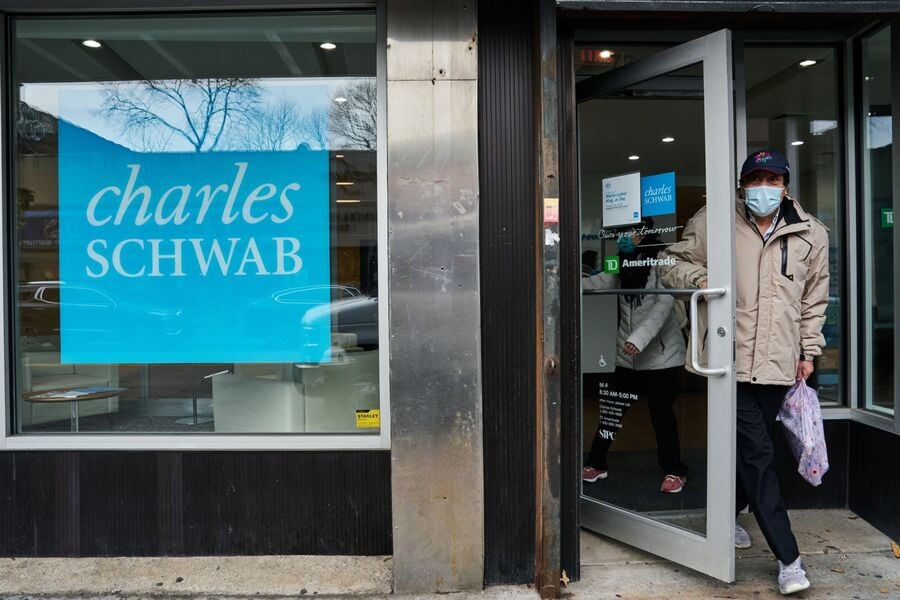

Charles Schwab, the billionaire founder of the eponymous discount brokerage, has seen his wealth plunge the most ever as pain spreads across the banking world in the wake of SVB Financial Group’s collapse.
Schwab, 85, has had $2.9 billion erased from his fortune since March 8, the steepest drop since he appeared on the Bloomberg Billionaires Index a decade ago. The net worth of Charles Schwab is down more than any other U.S. billionaire this year and now stands at $10 billion, making him the world’s 183rd-richest person.
Shares of Charles Schwab Corp. have tumbled 32% since Wednesday’s close, including 12% on Monday, as traders assess which institutions might be at risk from the forces that felled SVB. Similar to the California lender shuttered by regulators on Friday, Schwab has a large investment securities portfolio and significant paper losses in its held-to-maturity books. Unlike SVB, most of Schwab’s customer deposits are insured.
A spokesperson for the Westlake, Texas-based brokerage didn’t reply to a request for comment.
Schwab’s 23% wealth decline since March 8 is rare among billionaires in the typically staid finance industry.
The three-day wipeout has only been exceeded three times by those billionaires who Bloomberg classifies as making their money through finance: Dan Gilbert, the founder of Rocket Cos. who lost 37% in March 2021; Pollyanna Chu, formerly Hong Kong’s richest woman, whose fortune plunged 31% in early 2018; and Leaf Hua Li, the founder of Futu Holdings who saw 24% of his wealth wiped out in April 2021.
The majority of Schwab’s net worth comes from his roughly 6% stake in the brokerage he founded in 1971.

From outstanding individuals to innovative organizations, find out who made the final shortlist for top honors at the IN awards, now in its second year.

Cresset's Susie Cranston is expecting an economic recession, but says her $65 billion RIA sees "great opportunity" to keep investing in a down market.

“There’s a big pull to alternative investments right now because of volatility of the stock market,” Kevin Gannon, CEO of Robert A. Stanger & Co., said.

Sellers shift focus: It's not about succession anymore.

Platform being adopted by independent-minded advisors who see insurance as a core pillar of their business.
RIAs face rising regulatory pressure in 2025. Forward-looking firms are responding with embedded technology, not more paperwork.
As inheritances are set to reshape client portfolios and next-gen heirs demand digital-first experiences, firms are retooling their wealth tech stacks and succession models in real time.
